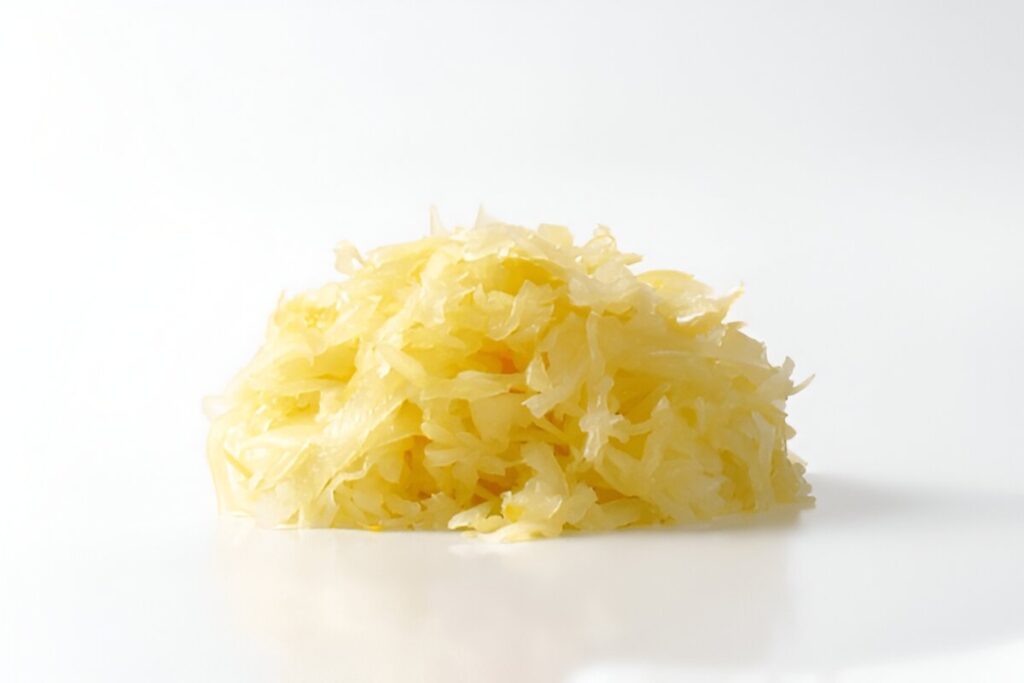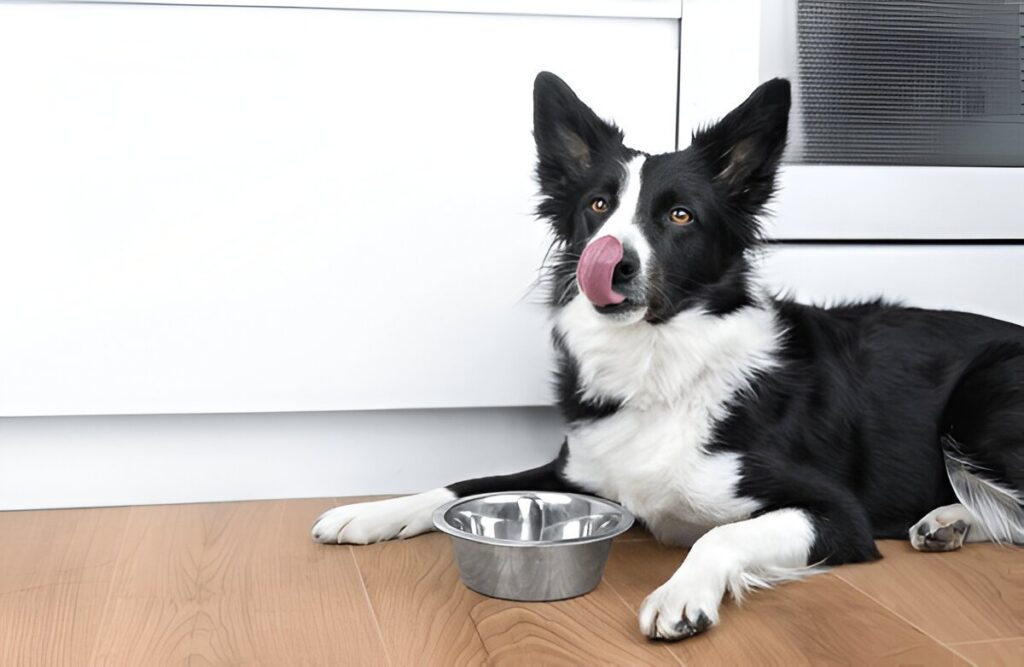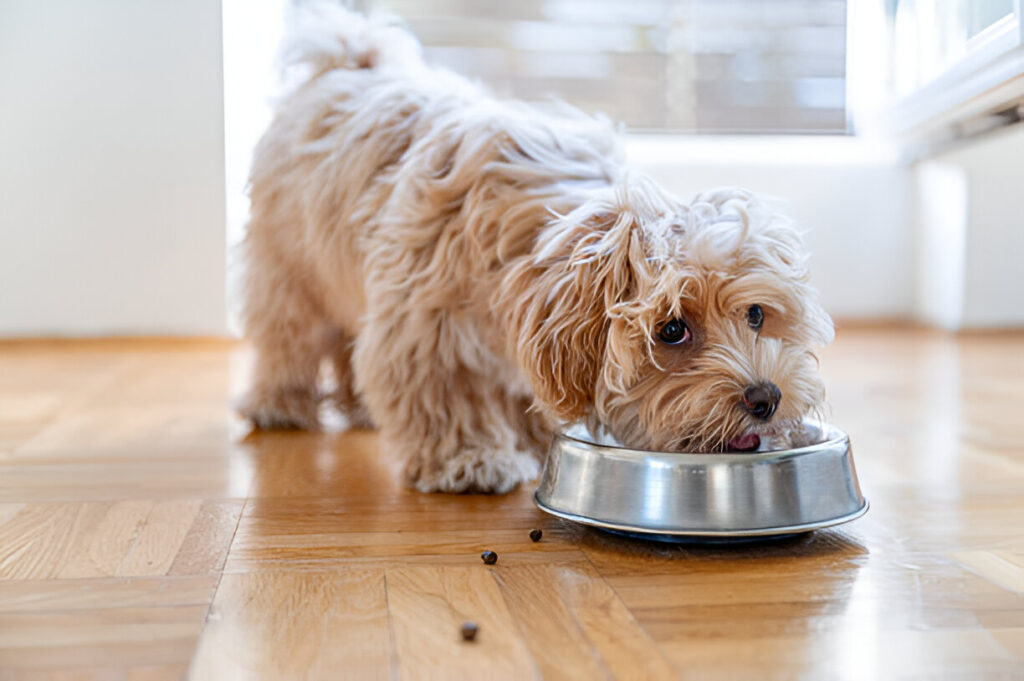Can Dogs Have Sauerkraut?
As a dog owner, you may wonder if certain human foods are safe for your furry friend. Sauerkraut, a popular fermented cabbage dish, often sparks curiosity. The good news is that sauerkraut can be a healthy treat for dogs when served properly and in moderation. Here, we’ll explore the benefits and precautions of feeding sauerkraut to dogs.

Image by Péter Göblyös from Pixabay
Yes, sauerkraut is generally safe for dogs to eat. The primary ingredients—fermented cabbage and salt—are non-toxic to dogs. In fact, sauerkraut can offer several health benefits due to its nutrient-rich profile and probiotic content. However, there are a few caveats to keep in mind to ensure it’s safe for your pet.
Benefits of Sauerkraut for Dogs

1. Probiotics for Gut Health:
The fermentation process used to make sauerkraut produces a variety of beneficial bacteria, also known as probiotics. These probiotics play a key role in supporting a dog’s digestive system by balancing the gut microbiome, reducing digestive upset, and enhancing nutrient absorption. A healthy gut microbiome can also strengthen the immune system, helping dogs fight off infections and illnesses more effectively.
2. Rich in Vitamins and Minerals:
Sauerkraut is a rich source of essential nutrients. It is particularly rich in: – Vitamin C: Boosts the immune system, maintains healthy skin, and helps in tissue repair. – Vitamin K: Helps in blood clotting and bone health. – Potassium: Helps in maintaining fluid balance, nerve signals, and muscle contractions.
- Fiber: Supports digestive health, helps maintain regular bowel movements, and can prevent issues like constipation.
3. Potential Detoxification Benefits:
Sauerkraut contains natural antioxidants, which may help neutralize free radicals in a dog’s body. These antioxidants are believed to support liver health by aiding in detoxification processes. Additionally, they may reduce inflammation, which can be beneficial for dogs with chronic conditions such as arthritis.
4. A Low-Calorie, Weight-Friendly Treat:
For dogs on weight management diets, sauerkraut is a low-calorie snack that adds flavor and variety without contributing to excess calorie intake. Its high fiber content also helps dogs feel full, which can assist in curbing overeating.
5. Improved Gut-Brain Connection:
Emerging research highlights the link between gut health and mental well-being in both humans and animals. The probiotics in sauerkraut may positively influence a dog’s mood and behavior by supporting this gut-brain connection, potentially helping with issues like anxiety.
Feeding Tips and Precautions:
- Opt for unsalted, plain sauerkraut without added spices, vinegar, or preservatives, as these ingredients can harm dogs.
- Introduce sauerkraut gradually to avoid digestive upset. Start with a small amount (1–2 teaspoons for smaller dogs, up to a tablespoon for larger dogs).
- Monitor your dog for any adverse reactions, such as diarrhea or gas.
- Always consult your veterinarian before making significant changes to your dog’s diet or introducing new foods.
How to Serve Sauerkraut to Dogs

If you are going to add sauerkraut to your dog’s diet, then it needs to be done in a careful way so that it is safe and healthy for them. Here’s a list of practical tips and guidelines for you:
1. Plain Natural Sauerkraut:
Opt for plain unseasoned sauerkraut, without ingredients such as onions, garlic, or spices, as these can be toxic to dogs.
- Avoid commercially prepared sauerkraut that contains vinegar, sugar, or preservatives.
- Fermented sauerkraut (raw and refrigerated) is preferable over canned or heat-treated varieties, as it retains its probiotic content.
2. Rinse to Reduce Sodium:
- Even plain sauerkraut may contain high levels of sodium, which can be harmful to dogs in large amounts.
- Always rinse the sauerkraut well in cold running water to minimize the sodium content. Serve it to your dog in this form.
3. Feed in Little Quantities:
- Always introduce sauerkraut gradually to prevent shocking your dog’s digestive system. Start little and adjust the amount according to the size of your dog as well as to his tolerance.
For small dogs: Use 1-2 teaspoons as a starting point. - Medium to large dogs: Offer up to 1 tablespoon.
- Sauerkraut can be served on its own as a snack or mixed into your dog’s regular food for added variety.
4. Monitor for Digestive Upset:
- Some dogs may be sensitive to sauerkraut, especially if it’s a new addition to their diet.
- Watch for signs of digestive upset, such as:
- Diarrhea
- Vomiting
- Excessive gas
- Loss of appetite
- If any of these symptoms occur, stop feeding sauerkraut and consult your veterinarian.
5. Frequency of Serving:
- Sauerkraut should be considered an occasional treat or supplement, not a staple food. Feeding it 1–2 times per week is sufficient for most dogs.
6. Consult Your Veterinarian:
- Before introducing sauerkraut (or any new food) to your dog’s diet, discuss it with your veterinarian, especially if your dog has pre-existing health conditions such as kidney disease or sodium sensitivities.
When Not to Feed Sauerkraut

While sauerkraut provides a number of health benefits, there are instances when it might not be the best for your dog. Understanding these situations can help you make the best decision for your pet’s health.
1. Dogs with Pre-Existing Health Conditions
- Kidney Disease: High sodium in sauerkraut puts a lot of pressure on the kidneys and should be avoided for dogs suffering from kidney diseases.
- Heart Disease: Excessive sodium can exacerbate heart problems, so sauerkraut should be avoided for dogs with cardiovascular conditions.
- Sodium Sensitivities: Dogs on a low-sodium diet or prone to high blood pressure should not consume sauerkraut unless it is thoroughly rinsed and approved by a veterinarian.
2. Allergies or Sensitivities
- Cabbage Allergies: Although rare, some dogs may be allergic or sensitive to cabbage or fermented foods, leading to itching, hives, or digestive upset.
- Fermentation Sensitivities: The probiotics in sauerkraut, while beneficial for many dogs, may not agree with every dog’s digestive system. Monitor for adverse reactions such as diarrhea, vomiting, or excessive gas.
3. Risks of Overconsumption
- Gastrointestinal Distress: Too much sauerkraut can overwhelm a dog’s digestive system, leading to symptoms such as diarrhea, bloating, or stomach discomfort.
- Excess Sodium Intake: Even small portions of sauerkraut can contribute to high sodium levels if fed too frequently or in large amounts.
- Gas and Flatulence: Cabbage is known to cause gas, and overfeeding sauerkraut may lead to discomfort or bloating.
4. Puppies and Sensitive Dogs
- Puppies with developing digestive systems may struggle to process fermented foods like sauerkraut. Start with minimal portions and consult your vet.
- Dogs with sensitive stomachs or those prone to digestive upset may not tolerate sauerkraut well.
Key Takeaways
- Always evaluate your dog’s individual health conditions and dietary needs before introducing sauerkraut.
- If your dog has any of the above issues or you’re unsure about feeding sauerkraut, consult your veterinarian for personalized advice.
- When in doubt, err on the side of caution and opt for alternative, low-sodium, dog-safe treats.
By being mindful of these potential risks, you can ensure your dog’s diet remains safe and beneficial.
Alternatives to Sauerkraut

If sauerkraut isn’t suitable for your dog or you’re looking for other probiotic-rich options, there are several alternatives that can provide similar health benefits without some of the potential drawbacks. Here’s a closer look:
1. Plain, Unsweetened Yogurt
- Why it’s a great alternative:
Yogurt contains natural probiotics, including Lactobacillus, which promote healthy digestion and a balanced gut microbiome. - Serving:
- Plain yogurt with no added sugars, artificial sweeteners (xylitol toxic to dogs), or flavors
- Greek yogurt is a better choice since they have less lactose in them
- Start by giving a small amount, the size of the teaspoon for little dogs and one tablespoon for large breeds
Benefits: - Easier on the stomach compared to sauerkraut.
- Provides additional calcium and protein.
- Caution:
Some dogs are lactose intolerant, so monitor for signs of digestive upset.
2. Kefir
- Why it’s a great alternative:
Kefir is a fermented dairy product rich in probiotics and typically contains more strains of beneficial bacteria than yogurt. It is also lower in lactose. - How to serve:
- Choose plain, unsweetened kefir without artificial additives.
- Serve in small amounts: 1–2 teaspoons for small dogs, up to 1–2 tablespoons for larger dogs.
- Benefits:
- Supports digestion and immunity.
- Contains vitamins and minerals such as calcium, magnesium, and vitamin B12.
3. Specialized Dog Probiotics
- Why it’s a great alternative:
Dog-specific probiotic supplements are formulated to meet canine digestive needs and avoid potential issues with human foods. - How to serve:
- Follow the dosage instructions provided on the product or recommended by your veterinarian.
- Benefits:
- Tailored for dogs, reducing the risk of adverse reactions.
- Available in various forms, including powders, chews, and capsules.
4. Fermented Vegetables (Dog-Safe Varieties)
- Why it’s a great alternative:
Other fermented vegetables, such as carrots or green beans, might be similar to sauerkraut in their probiotic benefit without the excessive sodium. - How to serve:
- Use plain, unseasoned vegetables that have fermented naturally and do not include additives such as vinegar or salt.
- Use small portions to test tolerance.
- Benefits:
- Low-calorie and nutrient-rich.
- Adds variety to your dog’s diet.
5. Bone Broth with Probiotics
- Why it’s a great alternative:
Some high-quality bone broths are fortified with probiotics, offering digestive support along with collagen and other nutrients. - How to serve:
- Choose dog-safe bone broth with no added onion, garlic, or excessive salt.
- Use as a topper for regular meals or serve as a treat.
6. Raw Goat Milk
- Why it’s a great alternative:
Raw goat milk is a nutrient-dense option that contains probiotics, enzymes, and vitamins. It’s also easier to digest than cow’s milk. - How to serve:
- Start with small amounts to assess tolerance.
- Choose pasteurized options to avoid potential pathogens.
- Benefits:
- Boosts gut health and immune function.
Conclusion
Sauerkraut can be a nutritious addition to your dog’s diet when served correctly. Its probiotics, vitamins, and low-calorie nature make it a healthy treat for many dogs. However, always choose plain, unsalted varieties, introduce it slowly, and monitor your pet’s response. If you’re unsure whether sauerkraut is right for your dog, consult your veterinarian for personalized advice. With proper care, you can safely explore this tangy treat as part of your dog’s balanced diet.
Yuns Legdm is a passionate advocate for pet care and the founder of this website, dedicated to providing valuable information for fellow pet lovers and veterinary professionals worldwide. With a deep love for animals, Yuns created this platform to connect passionate pet owners with expert insights from veterinarians around the globe.
This website grows with you—the passionate pet owners and veterinary experts—creating a trusted space where knowledge, experience, and love for animals come together. Whether you’re seeking advice on pet health, nutrition, or general well-being, this platform is here to support you on your journey of responsible and loving pet care.





